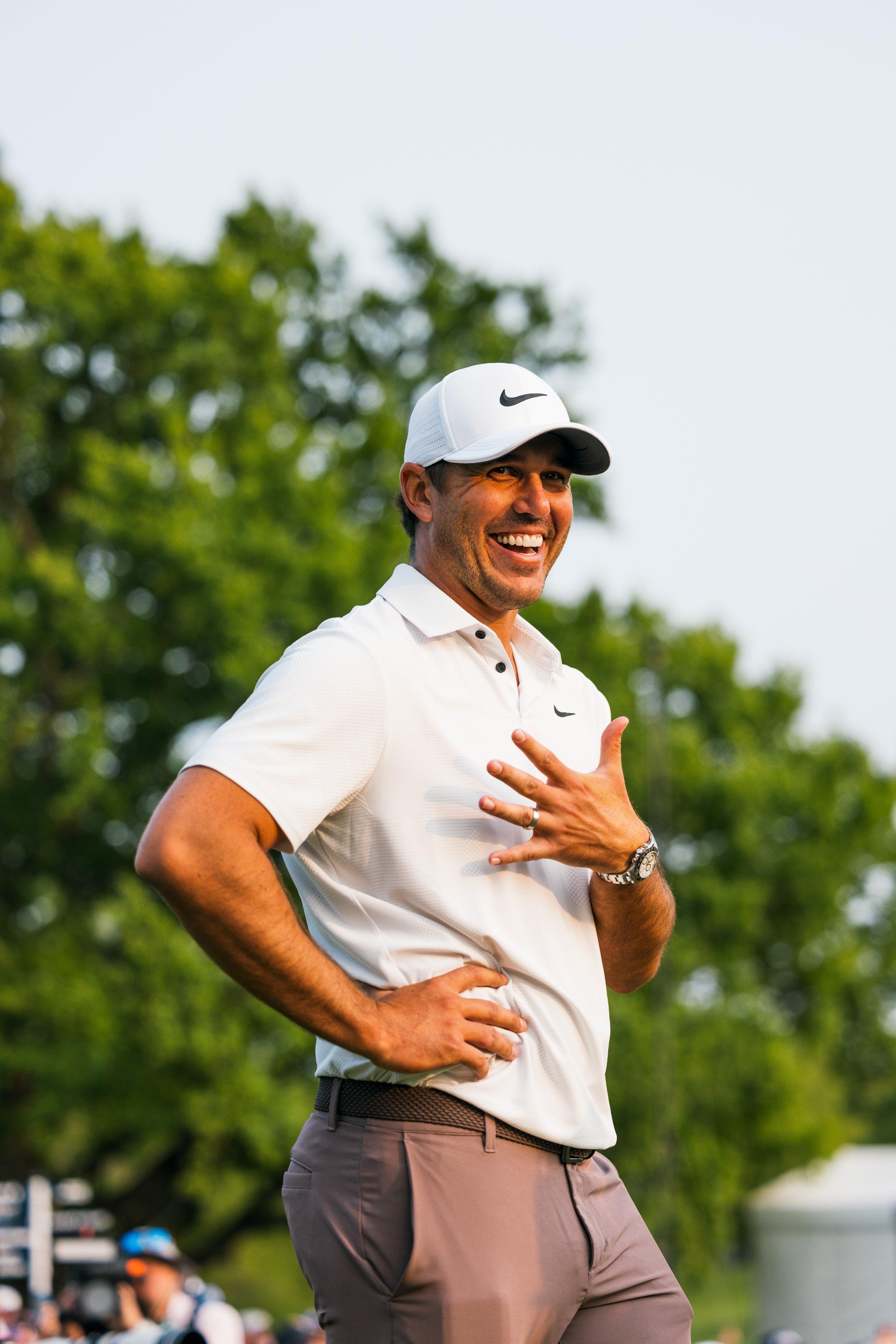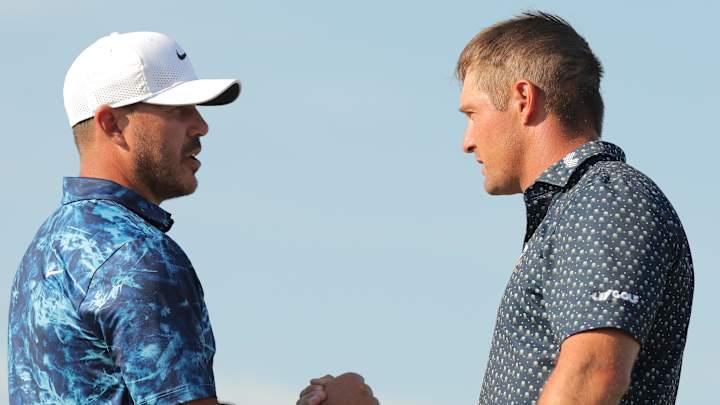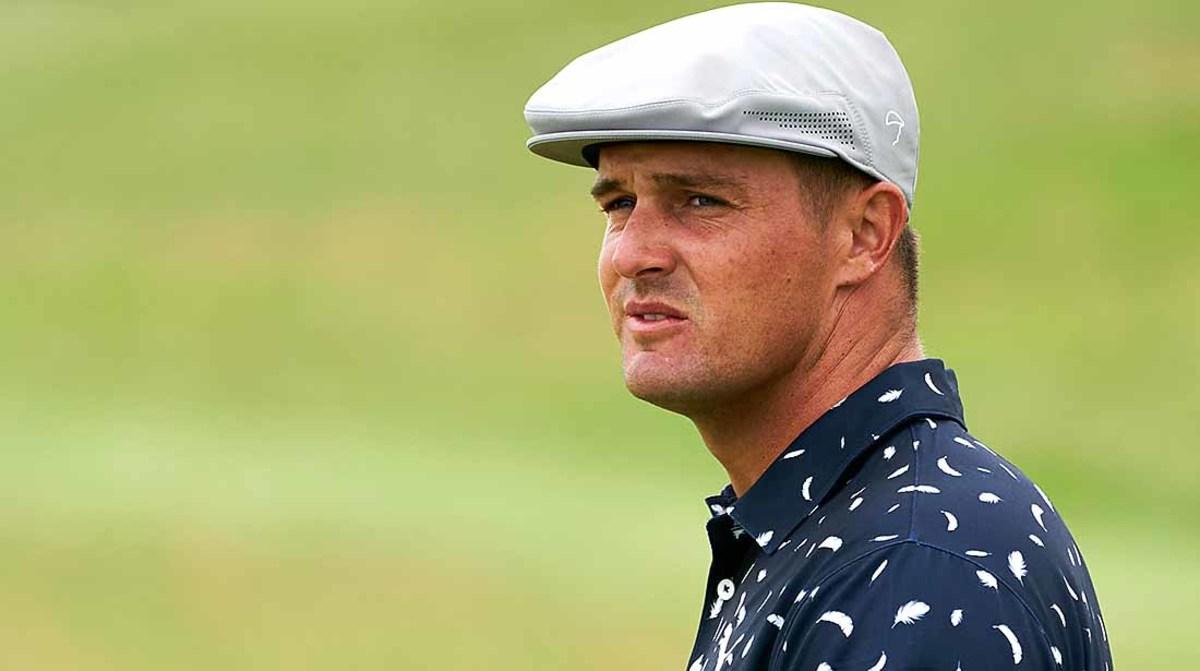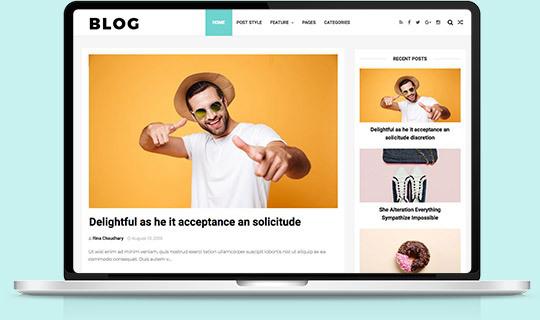Brooks Koepka Reflects on Rivalry with Bryson DeChambeau
In a surprising development, Brooks Koepka has publicly expressed regret over his past conflicts with Bryson DeChambeau. This change of heart follows DeChambeau’s poignant call for mental health awareness after clinching the U.S. Open title, igniting a broader conversation about mental wellness in sports.
The Evolving Dynamic Between DeChambeau and Koepka
The long-standing feud between these two golfers seems to be reaching a resolution. In an interview with Golf Digest, Koepka remarked, ”Bryson’s a good dude. We both said things we shouldn’t have; I hold no animosity towards him.” This newfound respect marks a significant shift from their previous exchanges filled with jabs and sarcasm.
The rivalry began in 2019 when DeChambeau faced criticism for his slow play, prompting quick-paced player Koepka to make several disparaging remarks about him. The tension escalated further in 2021 when comments regarding each other’s physicality were exchanged, leading to ongoing public spats that entertained fans but strained their relationship.
Koepka’s Insights on Their Dispute
Reflecting on the feud during recent interviews, Brooks admitted he acted immaturely at times: “I let my emotions dictate my actions and said things I regret.” He revealed that he reached out to DeChambeau to apologize and emphasized their shared humanity as competitors striving for excellence.
A New Chapter for Two Golfing Icons
This reconciliation is promising not only for the players but also for golf enthusiasts who have followed their journey closely. In another interview, Koepka stated he wishes nothing but success for DeChambeau: “I think it’s behind us now; life is too short to dwell on negativity.” His sentiments reflect an understanding that while competition is fierce, personal relationships can still thrive beyond the sport.
Lessons Learned from Their Journey
The reconciliation between these two athletes offers important lessons about forgiveness and growth within competitive environments. One key takeaway is humility—Koepka acknowledged how his earlier comments were inappropriate while DeChambeau recognized his own missteps during the conflict.
This situation also highlights the significance of perspective; both players have faced intense scrutiny from fans which has shaped their approach toward improvement in their game. They learned that respecting each other’s differences can lead to coexistence even amidst contrasting personalities.
Ultimately, this saga serves as an inspiring reminder that even deep-seated rivalries can be mended through understanding and mutual respect—an encouraging message not just within golf but across all areas of life.
A Broader Impact Beyond Golf
Bryson DeChambeau’s heartfelt appeal regarding mental health transcends sports boundaries by shedding light on often-neglected issues within professional athletics. His vulnerability resonated widely among peers and fans alike, fostering discussions around mental well-being—a legacy likely more impactful than any trophy won on the course.

From Rivalry to Respect: Brooks Koepka Apologizes to Bryson DeChambeau
The Background of the Feud
The relationship between Brooks Koepka and Bryson DeChambeau has been a focal point in professional golf, characterized by a series of public spats and competitive tension. The rivalry reached new heights with both players engaging in verbal exchanges, creating a spectacle that captured the attention of fans and media alike.
Turning Point: Bryson’s Mental Health Advocacy
Recent events took an unexpected turn when Bryson DeChambeau spoke out about mental health following his triumphant win at the U.S. Open. His heartfelt plea for greater awareness in the sport resonated widely, prompting an introspective response from Koepka.
DeChambeau’s candidness about his struggles created a moment of reflection, allowing Koepka to see beyond the rivalry, stating, “Bryson’s a good dude. I have no bad feelings towards him. We’re all just trying to do our best.”
Koepka’s Apology: A New Era in Golf
The significance of Koepka’s apology extends beyond personal relationships—it marks a watershed moment in the golfing community. With mental health becoming an increasingly important topic in sports, both players have the opportunity to influence a positive change in how players support one another.
Benefits of Respectful Rivalry in Golf
- Enhanced Competitiveness: Healthy competition can drive athletes to perform at their peak.
- Positive Fan Engagement: Respectful interactions between players can lead to increased fan support and engagement.
- Mental Health Awareness: Advocating for mental health creates a more supportive environment within the sport.
Case Study: Changes in Athlete Relationships
| Time Period | Type of Interaction | Impact on Sport |
|---|---|---|
| Pre-2010 | Traditional Rivalries | Intense competition with limited communication |
| 2010 – 2020 | Social Media Exchanges | Heightened drama and engagement |
| 2021 – Present | Supportive Communication | Focus on mental health and personal well-being |
Practical Tips for Athletes on Building Respectful Rivalries
1. Foster Open Communication
Encourage clear and respectful dialogue, both on and off the course. This can ease tensions and help build mutual respect.
2. Share Personal Stories
Sharing experiences related to mental health and personal struggles can create empathy among competitors.
3. Support Each Other Publicly
Praise each other’s achievements and efforts, which can shift the narrative from rivalry to camaraderie.
4. Engage in Community Initiatives
Jointly participate in charity events or mental health awareness programs to highlight the importance of well-being in sports.
First-Hand Experience: A Shift in Sports Culture
As the golf community reflects on this unexpected reconciliation, many fans and fellow athletes are recognizing the value of mutual respect in sports. With figures like Brooks Koepka and Bryson DeChambeau paving the way, there’s hope for a culture shift towards a more supportive environment for all players.
Conclusion
While the feud between Brooks Koepka and Bryson DeChambeau may have dominated headlines, their journey towards reconciliation speaks volumes about the evolution of relationships in professional sports. As they move forward, both players embody the potential for healing and understanding in a competitive world, reminding us all that respect and support can thrive even in the fiercest of rivalries.








